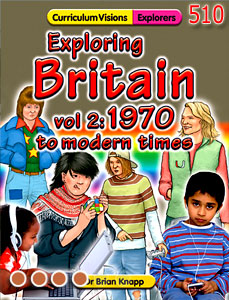Credit cards are small plastic cards which contain personal information about the holder's bank account, or account with a credit card company (usually the same thing). This information is partly kept as a magnetic (dark brown) strip on the back, and an embossed number on the front. In addition, there is a security number on the back.
To make it difficult for someone to use a stolen credit card, most credit cards now work with a PIN (Personal Identification Number) which is NOT written down.
The idea of a credit card is to save carrying cash about. It also means that people can buy items even if, for the time being, they don't have the money to pay for them. At the end of the month everything they have purchased is added up and the cardholder given the choice of paying the whole bill off, or paying part of it. If they only pay part of it, the credit card company charges them interest, which is added to the next bill. This interest is usually quite high, so credit cards should not be used to borrow money except as a last resort.
The credit card company makes its money by charging interest on outstanding money (as described above) and also by charging the companies who have credit card machines.
A debit card is similar, except that the money comes immediately from the holder's bank account, so if their bank money is used up, the card will no longer work. A debit card is better for people who are likely to overspend because it stops them from running up debt.




